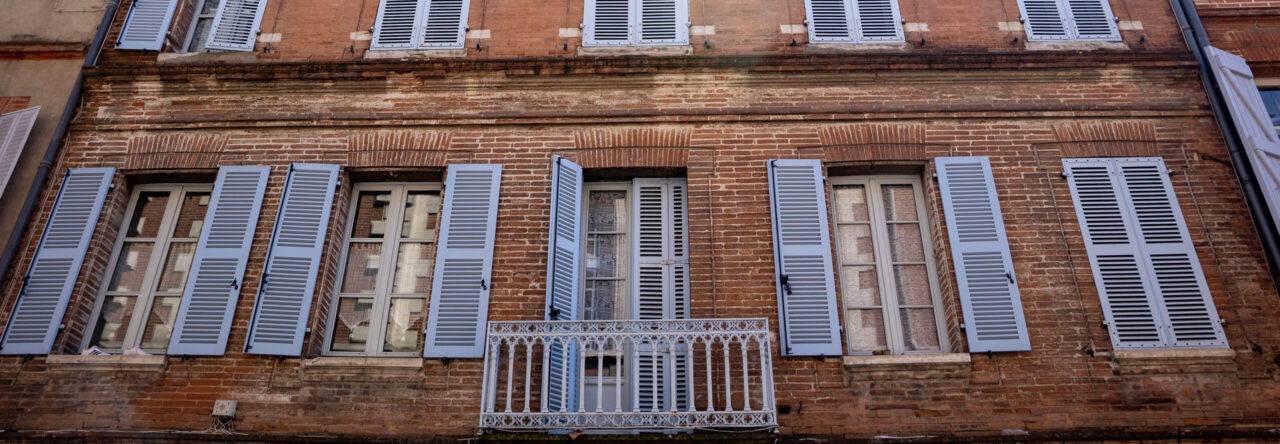Today I’ve been in France for seven months. I’m still certain that at any moment I’ll be on a plane going back home. It still hasn’t sunk in that I’ll be here for nine months. That being said, I like what I’ve seen so far. Toulouse isn’t like all the other cities that I’ve seen before. When I think of a city, I think of skyscrapers, concrete, and the noise of honking cars, but Toulouse is completely different. Sure, there are a lot of people and it can get noisy sometimes, but the city doesn’t feel the same. It feels calm.
I really love the feel of the city when I’m walking to class or shopping. There is one street, les allées de François Verdier, which is lined by huge trees. Sometimes there’s even an outdoor craft market that I browse on the way to wherever I’m going. Going to the Dickinson Center, I walk next to the canal. There’s a beautiful bridge, trees, and some interesting boats just sitting in the water that I love to look at. My university, l’Institut Catholique de Toulouse, is small but quaint, and it’s near the quarter called Carmes. There, one can find little cafés where people go to buy something small, like a coffee, and just sit there for hours.
The metro here is also really different than the ones in the US. Here, they’re clean and well-lit, and so inexpensive! I can go from my house to the center-city by metro, then take a bus somewhere else if I have to. During my internship in Philadelphia this summer, I only took the speed-line to cross the bridge. Otherwise, I walked everywhere. The French public transportation system works really well; they know exactly when a train is needed every 30 seconds (like at 8am or 5pm on weekdays) or late at night on the weekend when young people are out late.
My host family is super nice! I live with a mother, a father, and their two young kids, a boy and a girl, ages 14 and 9 respectively. I’m truly lucky because the mom is an English teacher at a high school. We don’t speak English a lot (it’s not allowed) but if I’m having a problem with a word or phrase, she helps me out. And one night a week we’ll speak English at the dinner table, just for fun. I was worried about my host family at first because of the stereotype that the French are reserved, but since the first time I met them, they’ve made sure I feel welcome and at home.
I can really see this city as my home!
-Tatiana Veres
